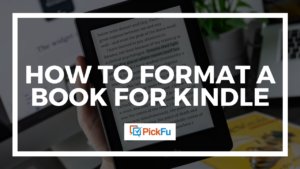All writers have their own creative process. Some are pantsers who fly by the seat of their pants. Others are planners who use outlines so they always know what’s going to happen next. It takes time to figure out writing strategies that best fit your style, but it’s well worth it. Use this list of writing strategies to see which ones work best for you.
Start with an outline
Think of outlines as guidelines for your stories. They lead you in the right direction, but they’re not set in stone.
An outline doesn’t need to be fancy or elaborate. If you have a general idea of where you want your story to go, you have enough to create an outline. Use it to summarize chapters, list events and major plot points in your novel, or keep track of your characters, settings, and timelines.
You don’t have to create an outline before you start writing. Create one whenever it feels right for you and your project. This can be during the initial writing stage or even after the first draft.
Write at the same time each day
Get into the habit of writing at the same time every day, even if it’s just for 15 minutes to start. When you stick to a routine as you begin your novel, you’ll train your brain to recognize that this is your creative time. Put your phone away and turn off all media. You might write 50 words or 1,000 words, but you’ll write something.
Your designated writing time is also a good opportunity to dive into the magical world you’ve created and enjoy some alone time developing your characters.
Other benefits to following a daily writing routine include overcoming writer’s block, expanding your writing skills, and boosting your creativity.
Switch up your environment
If you feel as though you’re in a rut or losing focus, it might be time to switch up your environment.
Swapping your home office for the library or a coffee shop refreshes your mind. It also removes distractions so you can be more productive. For example, you can’t get up and start cooking dinner if you’re working at the library. Your sole focus will be on your laptop or notebook.
Learn from other authors
If you’re still figuring out your creative process, look at what other authors do. Add to your list of writing strategies based on what works for them.
Katherine Anne Porter writes the final sentence of her novel first. Mary Lee Settle begins with a question and creates the plot around that. Many authors share these methods and have other effective writing strategies that you can use as inspiration.
Once you find your rhythm and start writing, your novel will begin to take shape. And when you’re ready for feedback, whether on the title or description of your book, PickFu is here to help.





